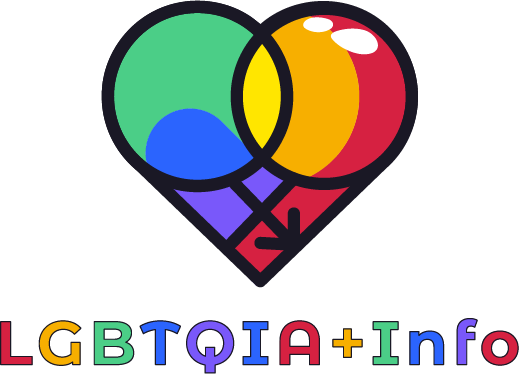We’re always refining the way we talk about people who identify as LGBTQ+. The word “queer” has gained a lot of traction in recent years, but what does it signify, and how is it distinct from “LGBTQ+”? The article will trace the evolution of these two words and discuss their modern meanings.
Introduction
Significant progress has been achieved in recent years toward acceptance and equality for the LGBTQ+ community. But words continue to be a potent force in influencing how society sees those on the margins. Creating a more accepting society requires a knowledge of how the language used to define the LGBTQ+ group has changed through time.
Recent years have seen a rise in the use of the word “queer.” Some people really like this word, however, it really triggers or offends other others. This article will discuss the origins of the word “queer” and how it varies from “LGBTQ+.”
*The History of the Term “Queer”
The history of the term “queer” is convoluted. Historically, it has been a pejorative slur for the LGBTQ+ community. However, beginning in the 1980s, members of the LGBTQ+ community started reclaiming the term and using it as a tool for expressing their identity and pushing back against heteronormative assumptions.

Many individuals, especially those of younger generations, use the term “queer” nowadays to describe themselves. It may refer to someone who identifies as part of the LGBTQ+ community, but it can also be used to describe those who don’t fit into the binary gender or sexuality classifications.
*The Evolution of the LGBTQ+ Acronym
The LGBTQ+ community’s preferred abbreviation has undergone a number of revisions in recent years. LGB&T was the original meaning of the term, although it has subsequently expanded to cover other identities. A “Q” may mean “queer” or “questioning,” a “I” could mean “intersex,” a “A” could mean “asexual” or “ally,” and a “+” could stand for any identity not already listed. Although the term has changed, its meaning has not: included all people who identify as LGBTQ+.
Defining “Queer” and “LGBTQ+”
“Queer” is a more narrow phrase that may be used as an umbrella term for non-heterosexual or non-cisgender identities, while “LGBTQ+” is a more general term that embraces a broad spectrum of identities. It’s worth noting that not everyone who identifies with the LGBTQ+ community uses the word “queer,” and some may even find it insulting.
The word “queer” has several meanings, including that of an identity label and that of an academic term describing a critical approach to gender and sexuality studies. The goal of this method is to dismantle the heteronormative framework that has dominated our understanding of gender and sexuality for so long.
Celebrating LGBTQIA Pride is important to recognize the progress made towards acceptance and to promote diversity and inclusion.
*The Pros and Cons of Using “Queer”
The word “queer” is useful because of the broad scope it encompasses. It’s a phrase that may be helpful for folks who don’t feel like they fit into any of the other categories, and it can embrace a wider spectrum of identities than the standard “LGBTQ+” abbreviation.
However, given its history as a slur, the word “queer” may be too upsetting or insulting for certain people. It’s also possible that the term’s historical use has left a bad taste in the mouths of certain older LGBTQ+ people.

*Understanding Intersectionality
The concept of intersectionality refers to the possibility that a person’s numerous identities may make them doubly vulnerable to oppression. A transgender person of African descent, for instance, may face bias on all three of these fronts. Recognizing the manner in which many identities interact to influence individual experiences requires an appreciation of intersectionality.
The Importance of Language
The way people in the general public think about and treat members of the LGBTQ+ community is heavily influenced by the terminology we choose to describe them. A more welcoming and supportive society may be achieved by the use of inclusive language and the recognition of people’s right to choose their own identities.
Learn more about the challenges and needs of the LGBTQIA population by exploring our comprehensive examination of their population data.
*Common Misconceptions
Some people mistakenly believe that members of the LGBTQ+ community are choosing to be this way or that they have a mental illness. It is crucial to learn about the truths of LGBTQ+ identities and to combat these damaging myths.
*How to Respectfully Use Language
The language used in discussions about the LGBTQ+ community should be sensitive to people’s need for privacy and anonymity. To avoid making assumptions about people’s gender or sexual orientation, it’s important to find out what they prefer being called and use that instead.
*Inclusivity in Society and the Workplace
If we want to build a society that welcomes and respects all people, we need to do more than just talk about it. Making sure that all workers are treated fairly and included in the workplace is one example of this.
Conclusion
Understanding the changing terminology used to define the LGBTQ+ group is essential to building an accepting culture. The abbreviation “LGBTQ+” continues to be the most well-known, although the word “queer” has gained acceptance as an all-encompassing description for those who don’t identify as heterosexual or cisgender. However, it’s crucial to learn the nuanced background of this terminology and accept people’s choices when it comes to their chosen identities.

